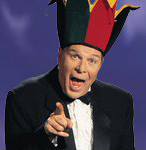The story behind the word inaugurate is an intriguing one. It literally means “to take omens from the flight of birds.” In ancient Rome, augurs would predict the outcome of an enterprise by the way the birds were flying. These soothsayer-magicians would tell a general whether or not to march or to do battle by the formations of the birds on the wing. They might even catch one and cut it open to observe its entrails for omens. Nowadays, presidential candidates use their inauguration speeches to take flight on an updraft of words, rather than birds — and they often spill their guts for all to see.
The numbers that designate this Inauguration Day — 1/20/21 — read the same forward and backward. When words do that, as in taco cat, they form what we call a palindrome. When dates do that, I call them calindromes.
![]()
I stratospherically recommend an extraordinary Netflix documentary film titled “My Octopus Teacher.” The story explores the interspecies relationship between Craig Foster, a deep-sea diver, and an octopus in the freezing ocean off the coast of South Africa.
The word octopus is derived from two Greek roots that mean “eight-footed.” In truth, an octopus possesses eight muscular arms, not feet. Nor do they possess tentacles.
![]()
How many punctuation marks do we use in writing the English language?
The answer is primarily 13: period (.), question mark (?), exclamation point (!), comma (,), semicolon (;), colon (:), dash ( — ), hyphen (–), parentheses (( )), brackets ([ ]), apostrophe (’), quotation marks (“) and ellipsis (…).
Wow! The sentence above is likely the most punctuated sentence I have ever typed and, I opine, you’ve ever read.
![]()
A mother mouse and her babies are foraging for food in the back yard of the home where they live. While she is instructing them about the best ways to find food, the house cat shows up, narrows his gaze on the little family and licks his whiskers in anticipation.
Suddenly, the mother mouse steps in front of her children and barks like a dog: “Arf! Arf!”
The startled cat turns tail and runs away. Immediately, mother mouse turns to her mouselets and says, “You see? This is why I keep telling you how important it is to learn a second language!”
On this subject, what do you call a person who speaks three languages? Trilingual.
What do you call a person who speaks two languages? Bilingual.
And what do you call a person who speaks one language? American.
![]()
Abecedarian is a letter-perfect word that means “pertaining to the alphabet or alphabetically arranged.”
The word alphabet is a joining of the first two letters of the Greek alphabet, alpha and beta. The Greeks inherited their letters from the Phoenicians, who probably took their alpha from the Hebrew aleph, “ox.”
Here are four paragraphs conjured up by John Buck, of Mountain View, California. Can you spot the abecedarian pattern of Mr. Buck’s creation?:
“Ah, Brutus,” Caesar’s dying exhalation flowed gently. “How incredible, just knowing life means nothing. Our proud queen, Rome, stands, too, utterly valueless. We’re x’s, yea, zeroes.”
Answered Brutus, cynically, “Despot! Every friend gathered has implored, ‘Julius, knavery leads men nowhere.’ Our public quarters resound sometimes, uncountable vandals writing x’s, yelling zanily.”
“And,” Brutus continued, “don’t ever forget, Gaius, how I’ve journeyed, killed, led men. Now, old pal, quavering responses show thy untimely vaccination wound’s x. You’re zapped.”
After burying Caesar, did everyone flee? Generally, his intimates just kept looking mournful, not overly perturbed. Quite respectful. Still, their ultimate value was x — yikes! — zero.
Answer: In each of the four paragraphs above the words start with the letters a through z in abecedarian order. Such a verbal feat is known as an alphabetical acrostic.
Comment by clicking here.
JWR contributor Richard Lederer is a language maven. More than a million of his books, which have been Book-of-the-Month Club and Literary Guild alternate selections, are in print. His latest work is Presidential Trivia: The Feats, Fates, Families, Foibles, and Firsts of Our American Presidents


 Contact The Editor
Contact The Editor
 Articles By This Author
Articles By This Author